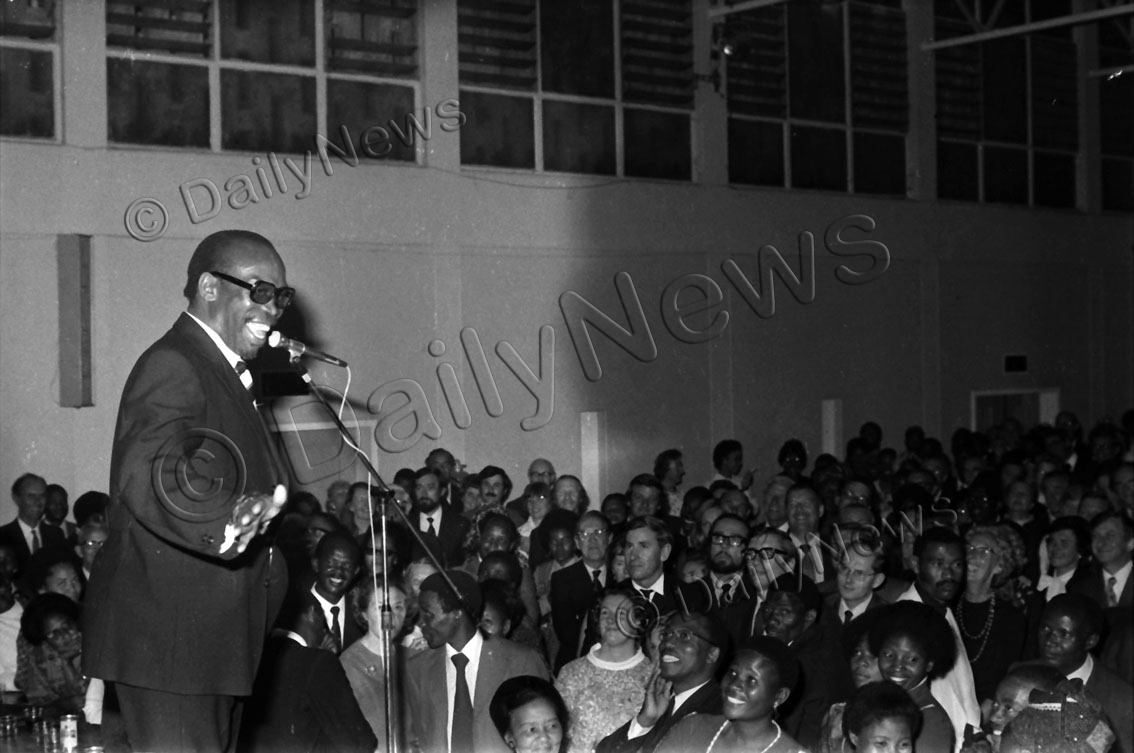Sir Seretse Khama non-racial stance
01 Jul 2019
“We are determined to create in Botswana a society in which nobody will be discriminated against because of the colour of their skin. We are very much aware of the need for harmonious race relations, living as we do next to countries in which racial intolerance is the order of the day,” Sir Seretse Khama, Official opening of Orapa Mine, 1972.
Racial tolerance, as necessary as it was then, in those formative years of Botswana as an independent state, to date remains a key tenet that, in addition to keeping the nation intact, continues to underline the country’s relations with the rest of the globe.
Among the key foundational principles that held the nation together in the colonial era, the era that ushered the white man where he was hitherto not known, the principle was later drummed up by Botswana’s founding father, Sir Seretse Khama, highlighting it in many different forums over a course of time.
Sir Seretse made the subject of racial tolerance a key theme, featuring it in several of his speeches; this underlining his strong belief on the need for people to treat each other fairly regardless of the colour of their skin.
Sir Seretse’s rule coincided with a period of great turbulence in the sub-region, where white minority regimes exerted much pressure on local populations and their leaders, stirring up dissent, resistance and intolerance against the white and vice versa.
Leading Botswana, one of the handful of countries in Southern Africa which did not engage in war on the path to self-rule, the tiny nation’s founding president became tactful, ensuring that his people maintained their peaceful stance even in the face of potential threat.
Literature shows him to have been a man keen on turning the fortunes of his nation around, a feat he achieved by ensuring that the young nation channeled its energies towards carving a path of development and self-reliance.
In his 1972 speech at the official opening of Orapa Mine, President Khama emphasised his government’ stance on racial intolerance.
He warned sternly against the perpetuation of such, stating in unflinching terms how those opposed to the objective of turning Botswana into a truly non-racial society had no place within the country’s borders.
My government’s intention to build the Botswana nation into a truly non-racial society is a very firm one, in pursuing this objective, we shall not allow anything or anybody to stand in our way.
Those who are not prepared to co-operate with us in this regard will find that there is no place for them in our society, and will be required to leave us in peace,” he stated.
Two years earlier during a kgotla meeting in Palapye, Sir Seretse had echoed the same sentiments.
He had cautioned Batswana against embracing racial intolerance, describing it as a destructive force that ought to be shunned at all costs.
To him, kagisanyo or peaceful co-existence was a bedrock of success, and one’ skin colour had no bearing on the contribution they could make.
“Motho ke motho, e seng gore motho ke motho ka ntata ya gore mmala wa gagwe o mo tsiang, kana ka gore ke morwa mang, kana ka gore morahe wa gagwe ke ohe…. Ha motho e le
Motswana re raa e le Motswana gothelele hela, e seng mo go tweng batho bale ba bantsho le ba basweu kana ba merahe ba nna mo lehatsheng le le lengwehela hela go bo go helela hoo….
Ga gona ope yo e le gore go nale tota e e mo tshwanetseng e e leng gore e heta ya ga semangmang. Ha e le gore tota motho o a e bona o taa e bona ka ditiro tsa gagwe e seng ka gore o mo tsiang,” he had told the gathering, underscoring how racial dissimilarity was immaterial to the Botswana he and his people aspired for.
He shared this stance on racial equality again in a speech he made, still in 1970, at a seminar organised by the Scandinavian Institute of African Studies in Uppsala, Sweden.
He highlighted how Botswana’s development as a ‘viable, united, non-racial democracy’ was the one major contribution the budding nation could make towards progress, towards majority-rule and towards self-determination in the sub-region. ENDS
Source : BOPA
Author : Keonee Kealeboga
Location : GABORONE
Event : FEATURE
Date : 01 Jul 2019






